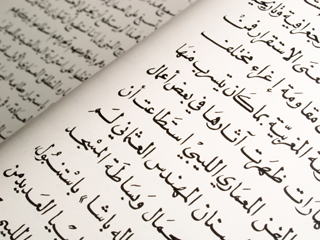
The Arabic language stands as a testament to the rich tapestry of linguistic diversity, offering a fascinating journey through its various forms and levels. From the classical elegance of ancient texts to the vibrant colloquial dialects spoken in bustling marketplaces, Arabic encompasses a spectrum of linguistic expressions that reflect centuries of cultural evolution.
Levels of Arabic Language: Exploring the Multifaceted Variants
The three levels of Arabic are Classical, Modern Standard (MSA) and Colloquial. Although all of these levels fall under the blanket of the Arabic language, they are each distinct from one another in many ways.
Classical Arabic
Classical Arabic is the Arabic of the pre-Islamic era. It is incredibly complex and sophisticated in terms of grammar and vocabulary. It is an incredibly beautiful language, peaking in the development of the Qur’an. The Qur’an took the Arabic language to a whole new world; one that native speakers believe will never be reached again.
Modern Standard Arabic
Modern Standard Arabic is essentially formal Arabic and is considered as a simplified version of Classical Arabic. MSA is the level of Arabic that is taught at most colleges and universities. It is also used in news reporting/broadcasting, books, and in formal settings such as political meetings, etc. It is not a conversational language due to its rigid grammar; it is seen as pretentious if used in casual environments. MSA is only used in day-to-day conversation if the speakers cannot understand one another’s colloquial dialects.
Colloquial
Colloquial Arabic is not a written language; rather, colloquial Arabic is solely a spoken language and is used in casual settings. The colloquial dialect varies from country to country. It is great to learn if you are seeking to blend into Arab society. Whether it be hanging out with your friends or asking the price of a product at a market, colloquial Arabic is the recommended way to communicate. As a student of the Arabic language, colloquial Arabic is my favorite variation of the language to study and speak.
Arab Language Countries: A Global Linguistic Network
Arabic serves as the official language in 22 countries across the Middle East and North Africa, including Egypt, Saudi Arabia, Morocco, and the United Arab Emirates. These nations form a vibrant linguistic network, where Arabic serves as a unifying force amidst diverse cultures and traditions.
How to Learn the Arabic Language: Tips for Aspiring Linguists
For those embarking on the journey to learn Arabic, a multifaceted approach is key. Engage in immersive experiences, practice regularly, and seek guidance from experienced instructors or language learning programs. Embrace cultural nuances and regional dialects, and immerse yourself in authentic Arabic media, literature, and conversations to enhance your language skills.
In Conclusion: Embracing the Beauty of Arabic
Aspiring linguists and cultural enthusiasts alike are invited to explore the rich tapestry of the Arabic language. Whether delving into classical texts, mastering formal communication, or navigating colloquial expressions, the journey through Arabic offers endless opportunities for growth, understanding, and appreciation of one of the world’s most captivating languages.
What are your thoughts on the three levels of Arabic? Which of the three, Classical, MSA, or Colloquial, is your favorite to study and/or speak? Comment below!
FAQs
Q: What are the three types of Arabic?
The three types of Arabic are Classical Arabic (used in the Quran and classical texts), Modern Standard Arabic (MSA, used in formal writing and media), and Colloquial Arabic (various regional dialects used in everyday conversation).
Q: What are the stages of learning Arabic?
The stages of learning Arabic typically include the beginner stage (learning the alphabet and basic vocabulary), the intermediate stage (building vocabulary and understanding grammar), the advanced stage (mastering complex grammar and achieving fluency), and the proficiency stage (achieving near-native understanding and use).
Q: What is the hardest part of learning Arabic?
The hardest part of learning Arabic often includes mastering the script and pronunciation, understanding complex grammar rules, and differentiating between the various regional dialects.
Q: Which Arabic is easiest to learn?
Modern Standard Arabic (MSA) is generally considered the easiest to learn because it is standardized and widely used in formal contexts. However, learning a specific regional dialect may be easier if you plan to interact predominantly in a particular Arabic-speaking country.
Q: Is Arabic language in demand?
Yes, Arabic is in demand for its geopolitical and economic significance, career opportunities in various fields such as translation, diplomacy, and international business, and growing interest in Arabic culture and literature.
Q: How long will it take to learn Arabic fluently?
It may take approximately 2,200 hours of study, or about 88 weeks, to reach professional working proficiency in Arabic, according to the Foreign Service Institute. This can vary based on the learner’s background, environment, and dedication.
____________________________________________________________________
You may also be interested in the following:
Ebook: A Resource for Working With Interpreters and Interpretation Equipment
Article: How to Become a UN Interpreter
Article: The World’s Ten Most Translated Authors
Article: Simultaneous Interpretation and the Brain
____________________________________________________________________






